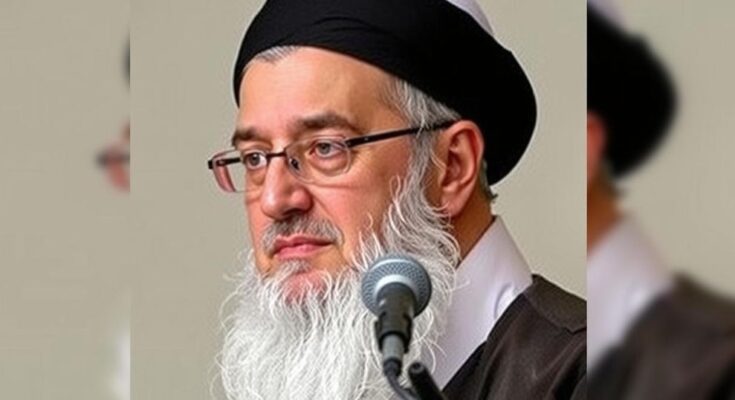The UAE has extradited Abdul Rahman al-Qaradawi, son of a Muslim Brotherhood leader, from Lebanon due to charges related to public security threats. His arrest is linked to a video viewed as incitement against regional governments, raising concerns about his treatment and trial in the UAE.
The United Arab Emirates (UAE) has detained Abdul Rahman al-Qaradawi, the son of the late Muslim Brotherhood spiritual leader, following his extradition from Lebanon. Arrested on December 28 after entering Lebanon from Syria, Qaradawi faces serious charges related to “activities that aim to stir and undermine public security.” The decision for extradition was made after an Egyptian court sentenced him to five years in prison for allegedly opposing the state and inciting terrorism. The UAE has reiterated its commitment to national security and its resolve to pursue individuals threatening its stability.
Qaradawi’s arrest was connected to a recent video he posted, where he celebrated the fall of Syrian President Bashar al-Assad and called for victories in neighboring regions while warning against what he termed “malicious regimes” in the UAE, Saudi Arabia, and Egypt. This statement was deemed as incitement by the Emirati authorities, who regard it as a direct challenge to their security. Rights groups, including Human Rights Watch, have raised concerns regarding the fair trial prospects for Qaradawi in the UAE and the possibilities of mistreatment in custody.
Abdul Rahman al-Qaradawi is a prominent figure with political organizing history against the rule of former Egyptian leader Hosni Mubarak. His father, Yusuf al-Qaradawi, was a noted Sunni scholar and spiritual guide for the Muslim Brotherhood, an organization that is classified as a terrorist group by both Egypt and the UAE. Yusuf al-Qaradawi faced multiple imprisonments in Egypt during his lifetime before passing away in 2022 in Qatar after years of exile. The extradition highlights the tense interactions among regional powers and their stances against the Muslim Brotherhood.
Abdul Rahman al-Qaradawi is the son of Yusuf al-Qaradawi, a prominent Muslim Brotherhood leader who faced numerous legal challenges in Egypt. The Muslim Brotherhood has long been viewed with suspicion by several Middle Eastern governments, particularly in Egypt and the UAE, where it is labeled a terrorist organization. The extradition deals reflect ongoing political tensions and the serious implications for individuals caught in this geopolitical strife, especially concerning freedom of speech and legal rights in Gulf states. Moreover, the crackdown on figures seen as threats to national security underscores the broader regional dynamics following events like the Arab Spring.
Abdul Rahman al-Qaradawi’s extradition from Lebanon to the UAE follows serious charges against him, linked to perceived incitement against national stability. The case highlights the ongoing conflict surrounding the Muslim Brotherhood in the region and raises significant concerns regarding human rights and fair trials in Gulf countries. As regional governments continue their stringent measures against dissent, the implications for political activists and their supporters remain profound.
Original Source: www.newarab.com




